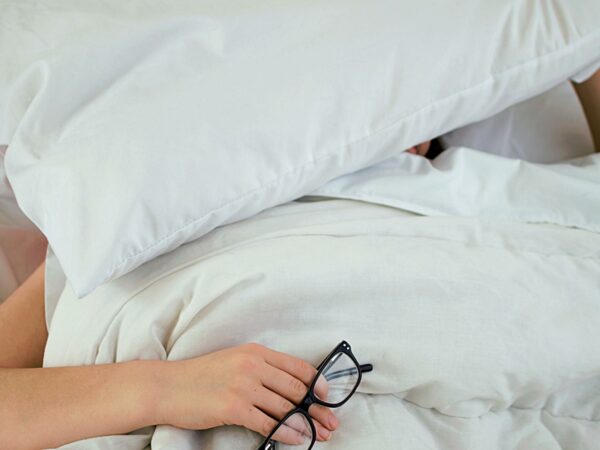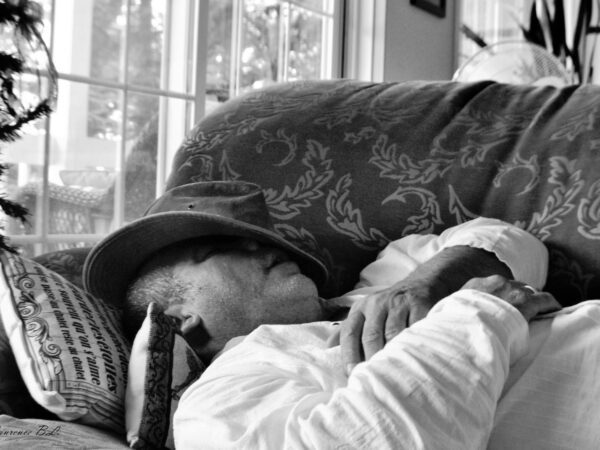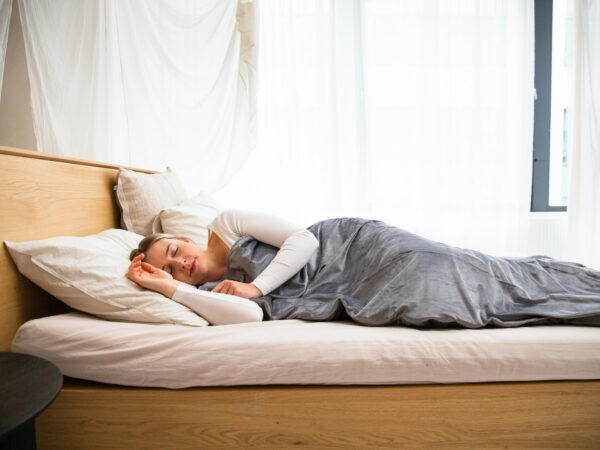Summary. Having a regular sleep schedule is essential for overall health and well-being. Lack of sleep can cause a number of adverse physical and mental effects, and make it harder to think clearly or focus. Adopting the habit of sleeping early is an important step to improving your health. This article outlines a number of useful strategies for developing the habit of sleeping early, such as setting a regular bedtime, avoiding screens before bed, eating and drinking sensibly, and exercising regularly. Taking the time to establish a healthy sleep routine is an investment that pays off in the long run by keeping you alert and energized throughout the day. Make it a priority to get your recommended number of hours of sleep each night and you’ll enjoy the benefits of a good night’s rest.
Good sleep is essential for a healthy lifestyle. But for many of us, developing the habit of sleeping early can be a challenge. Whether you have long days, stressful meetings, or too much to do and not enough time, it can be difficult to set aside time to get enough rest. But developing the habit of sleeping early is possible. Are you looking for ways to improve your sleep habits? Are you having trouble establishing a bedtime routine?
If so, keep reading to learn how to develop the habit of sleeping early. We’ll discuss tips and techniques you can use to get the restful sleep that you need. Start by understanding why getting enough sleep is so important. A good night’s sleep can help to boost your physical and mental wellbeing, improve your focus and productivity, and keep you on top of your game. Making sure that you’re setting aside enough time for 8 hours of quality rest throughout the night is essential for maintaining good health.
Understand the Circadian Rhythm
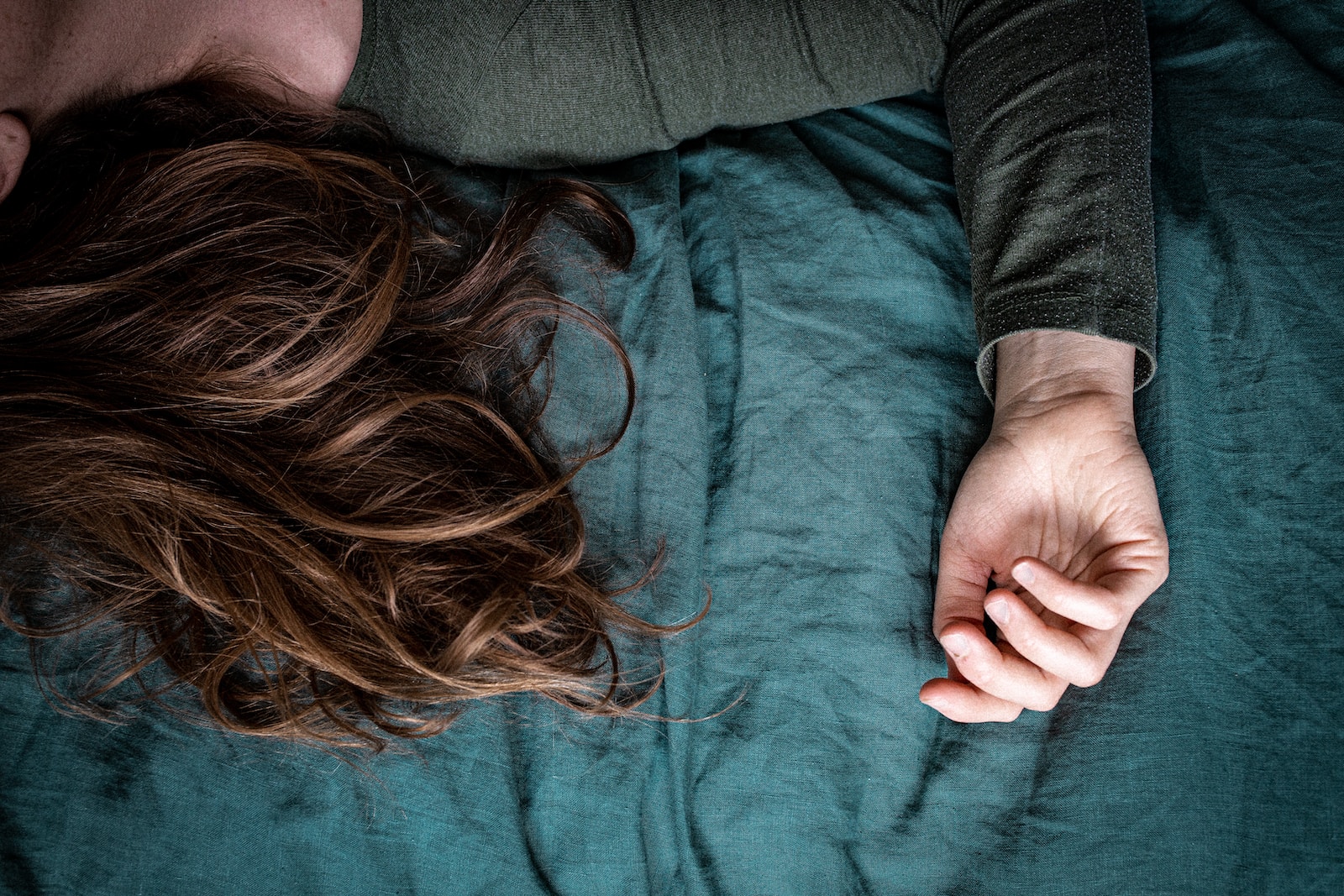
Want to develop the habit of sleeping early and understanding the Circadian Rhythm? It’s an admirable goal and can be difficult to achieve, but with focus and dedication it’s entirely possible. Firstly, it’s important to understand what a circadian rhythm is and how it affects us. The circadian rhythm is like a 24-hour biological clock that helps regulate our body functions daily. It manages our hormones, body temperature, alertness, hunger and other bodily functions in order to keep us in a healthy balance.
Now that you understand the circadian rhythm, learning how to develop the habit of sleeping early is the next step. It requires commitment and discipline, but the following tips can be useful: Start turning off your devices an hour before your bedtime; increase your exposure to natural light during the day; and stick to a consistent nightly bedtime and wake up time. Additionally, try to avoid eating heavy meals late at night, exercising 4-6 hours before bedtime, and reducing your caffeine intake. Developing the habit of sleeping early is about creating awareness and implementing mindful strategies. Upon waking in the morning, remind yourself of why early bedtime is important; if you discover yourself stuck in a cycle of too little sleep and feeling tired throughout the day, start a sleep journal.
Create a Bedtime Routine
Creating a bedtime routine is one of the best ways to develop the habit of sleeping earlier. Not only will it make winding down at night much easier, but it will also help set your body’s natural circadian rhythm so that you’ll be more in tune with your body’s natural bedtime and wake cycle. To develop a successful bedtime routine, start by picking a time each night when you want to start winding down for sleep.
Things to include in your bedtime routine can range from taking a hot shower or bath, drinking herbal tea, journaling or meditating, reading a book or listening to calming music, completing simple stretches or yoga poses, and dimming the lights for a more relaxing atmosphere. Whatever activities feel most calming and helpful for you to prepare for sleep. Next, allow yourself enough time to complete each activity, for example, if you plan to perform a 10-20 minute bedtime yoga routine, make sure to give yourself enough time to complete the routine before you begin.
By creating a consistent routine that acknowledges your body’s natural rhythm, you’re ensuring that your body will continue to recognize this same routine each night in order to prepare itself for quality and rejuvenating sleep. Implementing this type of bedtime routine will help you fall asleep faster and stay asleep longer. So, if you’ve been struggling to get the rest you need, developing a bedtime routine may be the answer to all your sleeping troubles.
Avoid Stimulants and Electronics Before Bed
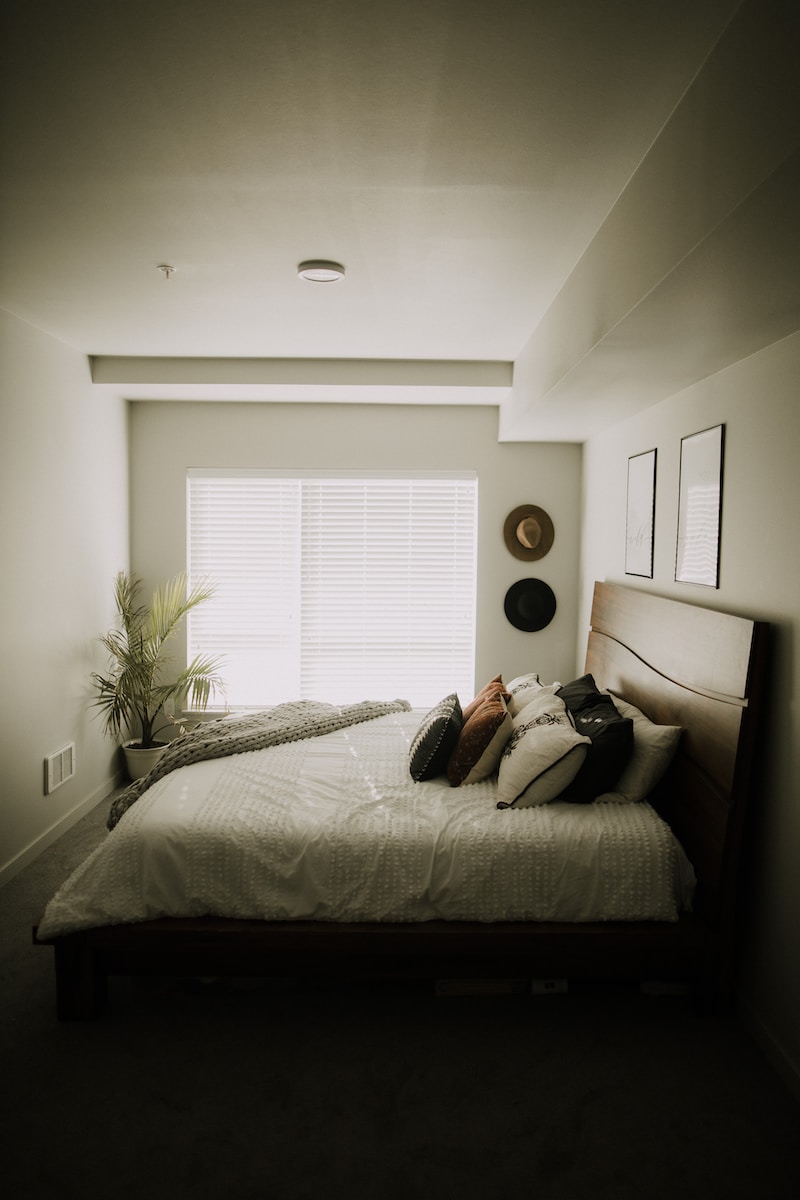

Developing the habit of sleeping early is essential to ensuring our bodies have the rest and relaxation they need. In order to make this habit a permanent part of your lifestyle, some simple suggestions should be followed and implemented. First and foremost, avoid stimulants and electronics before bed. While caffeine is a great way to get an energy boost in the morning, when consumed later on in the day it can prevent us from getting the rest we need at night.
Second, make sure you’re getting natural light in the morning and dark at night. Sunlight helps to set your circadian rhythm and natural sleep-wake cycle. The best way to do this is to open the shades in the morning and keep them closed at night. Additionally, it is beneficial to keep your bedroom dark after the sun sets as darkness triggers the body to start producing melatonin, which is a naturally occurring hormone that helps to regulate sleep and wake cycles.This could consist of turning off all electronics, taking a warm bath or reading a book, or writing in a journal.
Set the Scene for Sleep
Sleep is essential for our well-being and health, yet many of us struggle to develop the habit of sleeping early. With just a few minor adjustments, we can make life easier, helping us to fall asleep and stay asleep longer. Let’s take a look at some of the ways in which you can begin to develop the habit of sleeping early and ensure the quality of your restful slumbers. The first step in encouraging healthy sleep habits is to create a calming sleep environment. The room should be dark, quiet and comfortable.
Also, limit exposure to screens. Backlit devices such as cell phones and tablets stimulate the brain and impact our ability to sleep. Consider leaving them outside the bedroom, or put them away at least an hour before sleep. In addition to the physical environment, it’s important to regulate our habits to encourage quality sleep. Try to keep to a consistent sleep schedule, going to bed and waking up at roughly the same time every day — even on weekends.
Avoid eating heavy meals in the evening, and make sure to consume enough water during the day. Some relaxation techniques can also help to foster a healthy sleep pattern. Consider taking a warm bath with Epsom salts, or add some meditation or yoga to your nightly rituals. Reading a book or playing soothing music before bed may also encourage a better quality of sleep.
Sleep is critical for our overall well-being and health. Although it can be challenging to develop a habit of sleeping early, by creating the right sleep environment, establishing healthy habits, and implementing relaxation and mindfulness techniques, you can start to see improved sleep.
Cut Back on Naps and Late Nights


Developing good sleep habits is essential to overall health. Sleeping early is an important habit to cultivate. Too often, we are tempted to stay up late watching television or staying on our phones, and taking naps have come to be the norm in our sleep patterns. Of course, cutting back on these things can seem difficult. However, by following a few simple tips, you can develop healthy sleeping habits and begin to get the restful sleep you need to feel your best and stay healthy. Firstly, aim to create a consistent sleep schedule.
Because our bodies are designed to stick to a circadian rhythm, getting into the habit of sleeping and waking at the same times will help reset our internal sleep clocks and help us relax into the routine of healthy sleeping. Next, plan to be in bed at least an hour before you intend to fall asleep. This will give you ample time to relax and wind down before getting into the sleep-inducing state.
Avoid stimulating activities like reading emails or browsing the internet and instead opt for a pleasant routine like showering, reading a book, or listening to calming music. Avoid eating and drinking large meals or caffeine-laden beverages before going to bed as well.Keep the temperature comfortable, avoid overcrowding your room with furniture or items, make sure it is dark and quiet, and keep the technology out afterwards.
Utilize Natural Sleep Aids
t’s no secret that getting good sleep is essential for feeling energized, productive, and healthy. But for many, getting quality sleep can be a challenge. Developing the habit of sleeping early is key to get the restful sleep that your body needs. Here are some natural sleep aids to help you establish a relaxing bedtime routine and develop the habit of sleeping earlier. First, consider developing a nighttime ritual.
Practicing mindful meditation or guided imagery before bed can also be calming. Additionally, reduce caffeinated beverages and vigorous exercise close to bedtime, and instead focus on activities that make you feel relaxed such as reading, journaling, or stretching. Second, pay attention to your diet. Eating refined sugars, fried foods, or processed ingredients close to bedtime may disrupt sleep patterns. Instead, try eating a light snack such as a banana or a glass of almond milk before bed.
Make Sleep a True Priority


Establishing a regular and consistent sleep schedule is essential to a healthy lifestyle, both mentally and physically. Here are five tips to help you establish the habit of sleeping early and make sleep a true priority: The first tip is to set a consistent bedtime and wake up time for yourself throughout the week. Consistency is the key here, ensuring your body and mind get a clear signal when it’s time to go to sleep and to wake up. Additionally, if you’re having trouble nodding off at night, try to spend less time in front of screens in the evening, so you can transition to restful sleep faster. Secondly, make sure your bedroom is an inviting oasis. Create a relaxed and calming atmosphere by eliminating distractions, such as TVs, desktops or laptops, and phones.
Thirdly, make sure you have plenty of physical activity during the day. Exercise increases the production of serotonin, which is your body’s natural sleep-aid. Additionally, it reduces stress hormones which can make winding down for the night difficult. Fourthly, find activities that help you wind down in the evening. This doesn’t mean staring at a screen. Instead, try light reading, gentle stretches, or meditating.
Final Touch
How to develop the habit of sleeping early? Developing healthy sleep habits and getting a good night’s sleep can be difficult, particularly in a world where we are constantly connected to work and technology. The key to adapting to an early bedtime lies in gradually shifting your sleep schedule and changing your thoughts, attitudes, and behaviors around sleep. By establishing a consistent routine every night before bed, you can maximize your sleep time and wake up feeling energized and refreshed. Start by determining a reasonable bedtime and wake-up time that work for your lifestyle. Limit your time in front of screens and ensure that the bedroom is an optimal sleep environment.
Other useful tactics include engaging in relaxing activities an hour or two before bed. For instance, take a warm bath or read a book in low light. Another tactic is to set visible reminders and make sleep a priority. Additionally, consider taking natural sleep aids to assist in the habit-forming process. Above all else, you need to have patience.
With focus and dedication, you can change your habits and get yourself to bed earlier but ultimately it’s all down to you. With a concerted effort, clear goals, and a willingness to stick with the routine, you can develop a healthier sleeping pattern and make the habit of sleeping early a regular occurrence. It’s possible to say goodbye to late nights and start feeling more refreshed for the day ahead. With practice and dedication, you can learn the art of sleeping early and reap the benefits of a better night’s sleep. What strategies have you tried? What have you found to be the most rewarding and helpful in forming this healthy habit?
FAQs: The Insider View
What causes sleeping early?
These include lack of physical activity or exercise, poor diet, dehydration, boredom, poor sleep hygiene, lack of exposure to natural light, medical or mental health conditions, hormonal imbalances, side effects from certain medications, and certain environmental factors.
Is 7pm too early to go to bed?
Everyone has different sleep needs, so what is considered an early bedtime for one person may not be for another.
What time do people in their 20s go to bed?
Some may go to sleep late at night, while others may go to bed earlier, or even take naps during the day. Ultimately, the best time to go to bed is whatever works for you.
How early is too early to sleep?
Different people need different amounts of sleep. Generally, though, if you are consistently sleeping before 8pm, it may be a sign that you are not getting enough activity during the day or that you may be struggling with a sleep disorder.
When should a 25 year old sleep?
It is also important to listen to your body and get enough sleep to feel well-rested in the morning.
Used Reference Links:
https://www.quora.com/How-do-I-develop-the-habit-of-sleeping-early
https://www.masterclass.com/articles/how-to-sleep-earlier
https://www.dnaindia.com/health/column-develop-the-habit-of-sleeping-early-2686762



